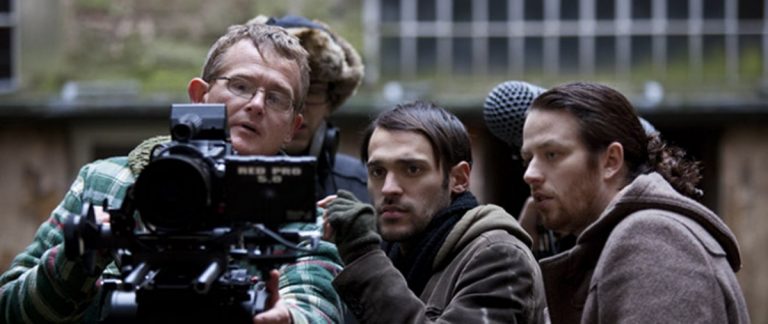
Films, TV shows and YouTube videos are some of the most pervasive and popular forms of entertainment these days. While watching your favourite drama, blockbuster, do you marvel at the special effects, or appreciate the cinematography of a particularly memorable scene that left an impression on you? Do you and your friends have spirited discussions about cliff-hangers or open endings? Have you ever wondered about the people who make them possible, and dream of doing the same in your future career?
![]()
Image courtesy of Met Film School
American playwright, screenwriter, and director Kenneth Lonergan has this to say about filmmaking:
“Filmmaking, like any other art, is a very profound means of human communication; beyond the professional pleasure of succeeding or the pain of failing, you do want your film to be seen, to communicate itself to other people.”
Film is not only an art, but a vocation – one that requires passion, determination, and creativity, but one that is also fulfilling. With the emergence of camcorders and smartphones, anyone can make a film, but to truly understand the craft and its nuances, there are some things that you can only learn under the guidance and tutelage of experienced practitioners.
Yes, even prominent directors such as Martin Scorsese and George Lucas, both of whom went to film schools, had to start somewhere.
![]()
Image courtesy of University of Derby
Not only do film, TV and online media courses teach students practical and technical skills in the screen arts such as operating a camera or film editing, but they also equip students with a highly transferable range of skills, including working in teams, communication, time management, critical thinking, and project management.
Students will also be able to explore their niche interests, as they delve the narrative, artistic, cultural, economic, and political implications of cinema over the years, from its beginnings to present day.
Speaking to The Guardian, Margaret Holbrough of Graduate Prospects said that an important factor that will either make or break your future career is the focus of your degree.
“Careers within the film industry are fiercely competitive and opportunities to pursue a technical or practical career will depend on the graduate’s experience and the content of the degree, and whether it focuses more on hands-on film production skills as opposed to the appreciation, analysis and interpretation of films and film genres,” she added.
As the film industry is known to be highly competitive, the added value of studying film at a higher education level – be it a short course, certificate program, or degree program – allows students to build a strong network of contacts among peers and those already in the industry, giving them an edge over those who choose not to.
![]()
Image courtesy of York University
Devin Tupper, who graduated with a BA (Hons) Practical Filmmaking from Met Film School in London, said that he felt well supported by staff during the process of writing and the development projects.
“All of the screenwriting courses at Met, especially the feature, taught me all the tools that I use today while developing all my projects, which include two new features and a pilot for a miniseries. I’m also currently working on a biopic,” he said.
Vicki Kisner, who completed an MA in Directing, said that the program has been an “invaluable experience.”
“It provided me with the tools, expertise and resources to improve my story telling and filmmaking skills. I also met and worked with some incredible future collaborators along the way,” she said.
If you wish to hone your filmmaking skills to reach your fullest potential, these schools and programs – all renowned for producing top-quality graduates in the profession – will help you on your path to a bright, rewarding career:
MET FILM SCHOOL – UK
Met Film School is more than just a place to learn –it is also part of the screen industry, working in conjunction with sister companies Met Film Production and Met Post. The school is located at the well-known Ealing Studios, famous for productions like Downton Abbey, Nowhere Boy, Notting Hill, Star Wars: Episode Two, and many others. It is the first UK film, television and online media school based in a working film studio and operating alongside the professional production company.
Its facilities include a 12,000 sq ft state-of-the-art building, a separate off-site shooting block with multiple spaces for camera workshops and productions, an Ealing Studios’ original sound stage as an on-site studio space, a multi-camera studio and gallery, and post-production editing labs.
The school’s tutors and guest speakers are all working screen professionals, many of whom have won BAFTAs, Emmys and Oscars. Under their guidance, students learn how to put theory into practice, and are provided with the support and expert advice needed to forge a career in the creative industries.
Many students who have graduated from the school have gone on to launch brilliant careers in film, television and online media, working in a broad range of freelance and permanent roles, as VFX Artists, Directors, TV Assistant Producers, Script Editors, On-Air Producers and many more besides.
UNIVERSITY OF DERBY – UK
The Department of Media and Performing Arts at the University of Derby is one of a select few academies in the UK that are run by award-winning film and television professionals, world-class researchers, and support staff who have a proven track record of working in the industry.
The university’s film-related undergraduate and postgraduate programs are based at Markeaton Street, just a short walk away from the city centre and the University’s main campus at Kedleston Road. Students have access to state-of-the-art facilities, thanks to the university’s rolling investment in cutting-edge camera, light and sound technology, along with dedicated studio, workshop and post-production facilities.
Undergraduates can pursue degrees covering film production, production design, visual effects and post-production, and media production, while postgraduates can focus on a specialist aspect of film or photographic practice, as well as explore the relationship between the two disciplines, under the MA in Film and Photography.
In line with the nature of the industry, many of the university’s graduates work on a freelance basis. The department provides support for aspiring entrepreneurs starting out in the creative industries through its incubation unit, Banks Mill, which offers studio workspace and business development activities in a vibrant and thriving community of artists, designers, and makers.
At the University of Derby, a challenging, well-rounded curriculum is backed up by a dedication to critical thinking and career planning that ensures its graduates can be found in top media positions around the world.
YORK UNIVERSITY – CANADA
Established in 1969, York University’s Department of Cinema & Media Arts is Canada’s first film school. It is internationally recognized as one of the premier centres for film production, screenwriting and studies in film theory and history. The department’s faculty, made up of award-winning filmmakers and critically acclaimed and widely published scholars, is widely respected.
Offering finely-honed programs and modern facilities, the department is housed in the largest teaching complex of its kind in Toronto, Canada. Thanks to a well-balanced curriculum rooted in the interrelationship of theory and practice, which also embraces diversity and social justice, its programs attract students from all over the country, as well as from around the world.
JOHNS HOPKINS UNIVERSITY – USA
Under the Krieger School of Arts & Sciences, the university offers undergraduate and postgraduate programs in film and media, incorporating courses in film history, aesthetics, and theory; theory and practice in television, popular culture, and new media; and all aspects of 16mm film and digital video production, including narrative, documentary, animated, and experimental film.
The programs combine a real industry education with a rigorous, well-rounded curriculum designed to foster critical understanding and historical knowledge of film and media, as well as their relationship to modern cultures, literature, art, history, and philosophy. During their studies, students are able to apply their analytical and theoretical knowledge to the production and creation of visual texts.
Located in Baltimore, Maryland, the campus is close enough to New York and Los Angeles that students can pursue internships at both independent companies and large studios. Majors also take courses with students from the Film and Video Arts Department at the Maryland Institute College of Art (MICA) and with student composers and sound engineers at the Peabody Institute.










